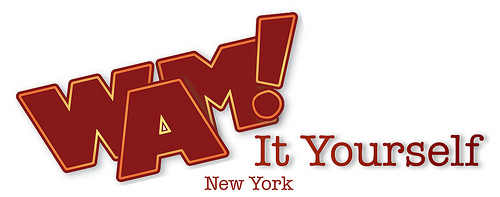Written by Megan Kearns.
As you could have probably guessed, I’m obsessed with feminist media. Not only do I write about gender, race and class here at Bitch Flicks, but also at my own blog and for Fem2pt0. I pretty much eat, sleep, and breathe film and television and deconstructing gender analysis. I incessantly talk online and in real life about female characters, the Bechdel Test, the need for more female filmmakers, and for greater diversity of roles on-screen. And yes, I’m constantly telling my friends about women-centric and women-directed films they must see.
Here’s a description of the conference from WAM!’s website:
“Are you feminist journalist or media activist? Love creating, consuming and critiquing race, gender, and class in media? Want to learn more tools, strategies and ideas to do your work better and meet other print, online, multimedia journalists and activists doing awesome work.”
- Diversity and Justice in Media Representation
- Lights, Camera, Talking Points: Media Training
- Negotiating 101: Salary, Contracts and More
- Responsible Reporting
- Acing Your Freelance Life
- J-School Crash Course
Don’t live in NYC or can’t attend, there are WAM! events in Austin, Boston (my home-town where they’re hosting the WAM! Boston Film Festival), Camden, NJ, Chicago, DC, Los Angeles, Ottowa and Vancouver. Or start a chapter in your area!
We have a huge media problem. Women are overwhelmingly underrepresented in the media.
Of the top 250 grossing films in the U.S. in 2012, women comprise 9% of directors, 15% of writers and make up 18% of all directors, executive producers, producers, writers, cinematographers, and editors. For documentary directors at major film festivals, women are 39% of directors. Only 33% of films’ speaking roles belong to women. Most film reviews in mainstream media are written by men. 88% of video game developers are male even though 47% of gamers are women. 30% of women are TV news directors. Talk radio hosts are overwhelmingly male. Newspapers are more likely to quote men than women. On Sunday TV talk shows, women are 14% of those interviewed and 29% of panelists. Female authors’ books get reviewed far less than men’s and male literary critics are published far more than women.
So it’s time for us to do something about it.

